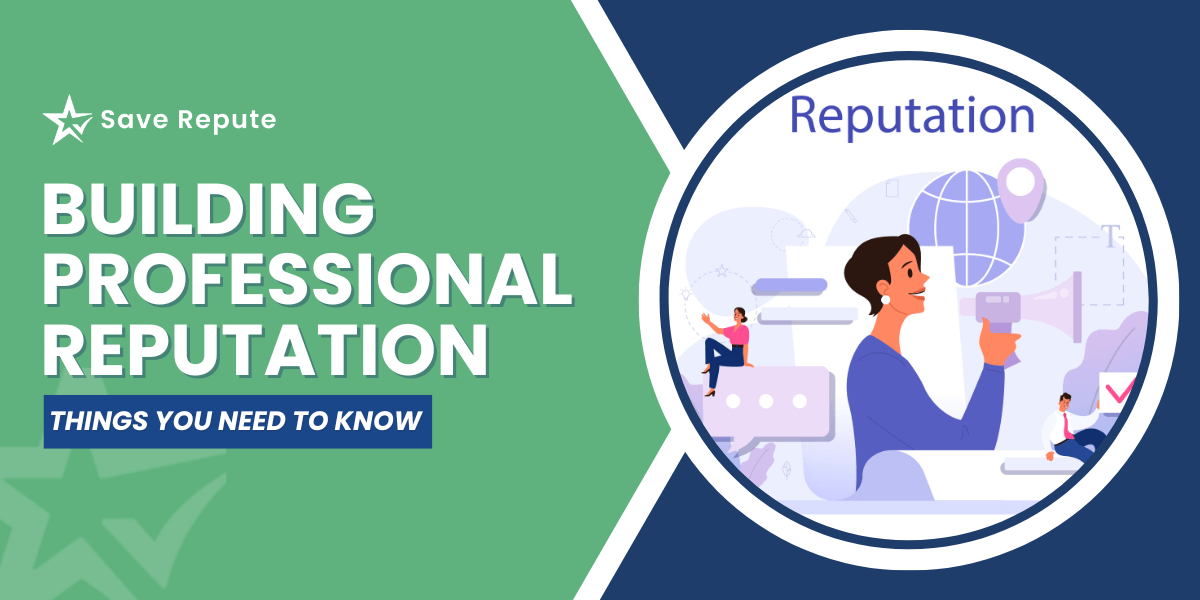Your professional reputation is the invisible badge you wear every day, showcasing your dedication, values, and work ethic. It’s what colleagues whisper about when you leave the room and what clients think of when they hear your name.
In an interconnected and fast-paced world, maintaining a positive professional image is more vital than ever. It can be the bridge to opportunities or a barrier to growth. Understanding its importance and taking steps to nurture it is essential to ensure a thriving career.
What is Professional Reputation?
A professional reputation is like a personal brand but specifically tailored to the workplace. It’s the collective perception others have about you based on your work ethic, achievements, interactions, and overall behavior in a professional setting.
This reputation isn’t built overnight but is a culmination of consistent actions, decisions, and interactions over time. While skills and expertise play a role, your reliability, integrity, communication style, and even your punctuality contribute to this perception.
Essentially, it’s the legacy you’re building every day at work, even when you’re not actively thinking about it. It reflects not just what you do but how you do it and how others feel about working with you.
Components of Professional Reputation
Professional reputation isn’t a singular, monolithic entity; it’s a mosaic of various interrelated components. Here are the primary elements that define and shape it:
- Work Ethic and Performance: How diligently and efficiently you perform your tasks. Consistent, high-quality work can earn you a reputation as a reliable and skilled professional.
- Interpersonal Skills: How you communicate and collaborate with colleagues, clients, and superiors. Emotional intelligence, active listening, and clear communication are vital.
- Integrity and Honesty: Your commitment to ethical practices and transparency. Trust is hard to earn but easy to lose, making honesty a foundational component.
- Reliability: How dependable you are in delivering tasks on time, meeting deadlines, and fulfilling promises. It establishes trust within teams and organizations.
- Professional Etiquette: Respecting boundaries, responding promptly to communications, dressing appropriately, and demonstrating good manners in all professional interactions.
- Feedback and Responsiveness: How you handle criticism, feedback, and suggestions. Being receptive and adaptable is indicative of a growth mindset.
- Visibility and Networking: How you present yourself in the industry, your involvement in conferences, workshops, or webinars, and interact in professional networks.
- Continuous Learning: Your commitment to professional growth, upskilling, and staying updated with industry trends.
Role of Professional Reputation Management Providers
In today’s digital age, the spread of information is rapid, making managing one’s professional reputation even more critical. Enter professional reputation management providers. These are experts or agencies specializing in curating, enhancing, and protecting your professional image, primarily online. Let’s dive into their essential roles:
Online Monitoring:
With the rise of the internet, your reputation isn’t just built in face-to-face interactions. These providers use tools and software to monitor mentions of your name or brand across various platforms, alerting you to positive and negative feedback.
Content Creation and Strategy
They craft a content strategy highlighting your achievements, expertise, and positive aspects. This can include articles, blog posts, press releases, or even social media updates that reflect your professionalism.
Search Engine Optimization (SEO)
By optimizing your professional content, these providers ensure that positive information appears at the top of search results, pushing any negative or irrelevant content further down.
Crisis Management:
With Crisis Management of Brand, In the event of negative publicity or defamation of professional reputation, they devise strategies to address the situation swiftly, minimizing damage and guiding you on how to respond.
Social Media Management:
A critical component in today’s networking world, they can manage and curate your professional profiles to reflect consistency and positivity.
Feedback Collection and Analysis:
Gathering reviews, testimonials, or feedback and analyzing them provides insights into areas of improvement.
Training and Consultation:
Beyond just managing the present, these providers often offer training sessions or consultations to help you understand the nuances of online reputation and equip you with tools to maintain it yourself.
How to Build or Maintain Professional Reputation?
Building or maintaining a robust professional reputation requires deliberate effort and consistent attention to detail. It’s about more than just delivering on tasks; it’s about how you navigate the professional landscape. Here are some actionable steps to help you craft and sustain a commendable reputation:
- Deliver Consistently: Ensure that your work is always of high quality. Consistency in your output builds trust and establishes you as a reliable professional.
- Uphold Integrity: Always be honest and transparent in your dealings. If you make a mistake, own up to it and take steps to rectify it.
- Engage in Continuous Learning: Stay updated with the latest trends in your industry. Attend workshops, seminars, and webinars. This not only enhances your skills but also showcases your commitment to growth.
- Communicate Effectively: Whether it’s with team members, superiors, or clients, clear and timely communication is crucial. Avoid ambiguities and ensure you’re understood.
- Practice Professional Etiquette: From punctuality to dressing appropriately and respecting boundaries, these seemingly small gestures go a long way in defining your professional image.
- Seek Feedback: Regularly ask colleagues or mentors for feedback. It’s a great way to identify areas of improvement and demonstrates your willingness to evolve.
- Network Actively: Forge meaningful professional relationships. Attend industry events, join associations, and engage in discussions. It helps in expanding your visibility and influence.
- Manage Your Online Presence: Ensure that your LinkedIn profile, personal website, or any other professional platforms are up-to-date and reflect your best achievements. Regularly monitor and manage your online reviews and feedback.
- Avoid Controversies: Steer clear of office politics or online spats. Avoid sharing controversial or divisive opinions in professional settings.
- Celebrate Others: Recognizing and celebrating the achievements of colleagues fosters goodwill and strengthens professional relationships.
Importance of Maintaining Professional Reputation
Having an excellent professional reputation is like having a solid foundation for a building. It ensures stability trust, and often acts as a magnet for opportunities. When people know they can rely on you because of your past actions and consistent behavior, they’re more likely to seek you out for collaborations, partnerships, or new roles.
This trust is essential in our interconnected world, where news travels fast. The role of reputation monitoring has grown in importance, helping individuals keep track of their image online. Plus, managing it proactively also saves you from defamation professional reputation cases. It’s a way to see how you’re perceived and ensure that the digital world’s view of you aligns with reality. In short, maintaining a positive professional reputation is a cornerstone for career success, opening doors and creating valuable connections.
Common Pitfalls That Can Harm Professional Reputation
- Missed Deadlines: Consistently failing to meet commitments or deliver on time.
- Poor Communication: Leaving messages unanswered or not communicating changes effectively.
- Overpromising: Setting unrealistic expectations and then underdelivering.
- Engaging in Office Politics: Getting involved in unnecessary drama or conflicts.
- Not Adapting to Feedback: Ignoring constructive criticism or not showing willingness to change.
- Inappropriate Online Behavior: Sharing unprofessional content or divisive comments on social media.
Benefits of Managing Professional Reputation
- Enhanced Career Opportunities: Opens doors to better job offers and collaborations.
- Increased Trust: Strengthens relationships with colleagues, clients, and superiors.
- Higher Visibility: Stands out positively in industry networks and circles.
- Better Negotiation Power: A strong reputation can lead to improved terms in deals or contracts.
- Resilience to Criticism: A well-managed reputation can cushion the impact of negative feedback or controversies.
- Long-term Career Growth: Paves the way for advancements and leadership roles.
- Positive Online Presence: Ensures a consistent and commendable digital footprint.
Conclusion
In the vast landscape of the professional world, few assets are as invaluable as a sterling Professional Reputation. It’s a dynamic blend of consistent performance, open communication, and unwavering Professional Etiquette. As we navigate our careers, it’s essential to not only build but also continually evaluate our standing through regular **reputation analysis**. By doing so, we ensure that our professional image remains a positive force, driving opportunities and fostering beneficial relationships at every turn. In essence, a well-managed professional reputation is not just an asset; it’s the compass guiding us towards sustained career success.


